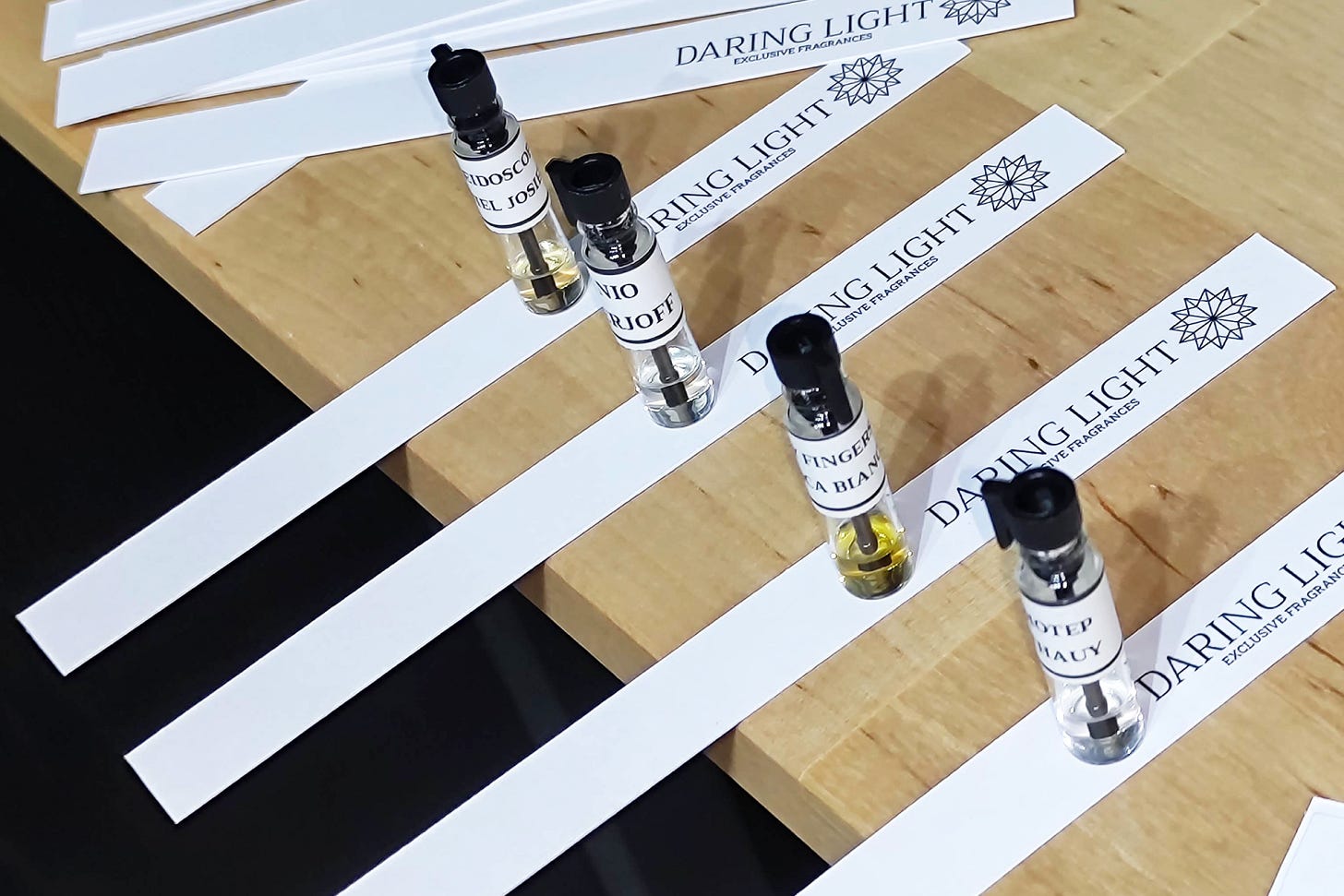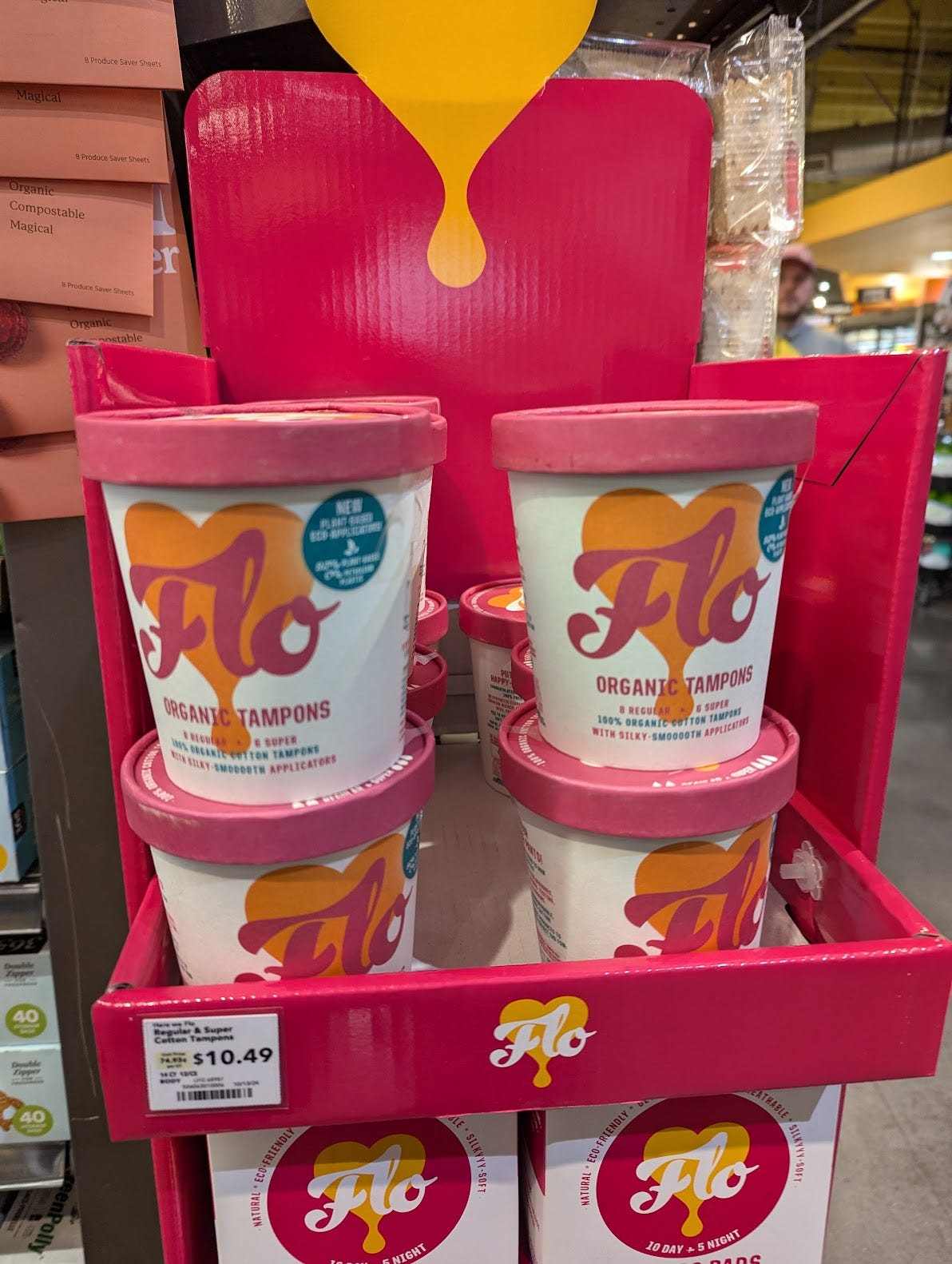I’ve wanted to do a “52 things” list for a long time; 2024 was the year I finally got disciplined about it. The inspiration comes from Jason Kottke, who was inspired in turn by Tom Whitwell, who’s been publishing “52 Things I Learned” for a number of years. One of Whitwell’s 52 things for 2024: “In the 2020s, over 16% of movies have colons in the title (like Superman: Man of Steel), up almost 300% since the 1990s.”
Most of my “things” are name, branding, and language things, because that’s my beat. But I’m interested in other things, too!
Here we go: 52 things, one for each week.
This newsletter is probably too long for email. Click on the headline for a browser view or switch to the Substack app.
STEM — the education acronym for “science, technology, engineering, and math” — was originally SMET. Judith Ramaley, an assistant director at the National Science Foundation, pushed through the change in 2001: “Not only did she dislike the sound of the acronym . . . it was not logical to her either. Switching the order of the letters to make science and math cradle engineering and technology made more sense to her.” (ATE Central)
The British shoe brand name Solovair is a fancified phonetic spelling of “sole of air.”
The British apparel company Sunspel, makers of luxurious underwear and T-shirts for men and women, gets its name from the “sunny spells” in the Caribbean where Sea Island cotton is grown.
I learned how to make a movie! Our 20-minute documentary 21 Miles, 12 Feet, and 439 Years had its premiere in May at San Francisco’s Dolphin Club and will be streamed as part of the Legacy Film Festival on Aging in February 2025.
The Matthew effect is “the tendency of individuals to accrue social or economic success in proportion to their initial level of popularity, friends, and wealth.” It was named after a verse in the Christian Bible, Matthew 25:29: “For to every one who has will more be given, and he will have abundance; but from him who has not, even what he has will be taken away.” In other words: The rich get richer. (Via
December 19, 2024.)NOTAFLOF is an acronym for “No One Turned Away For Lack Of Funds.” (Via
January 17, 2024.)There is no person named “Max Mara” behind the Italian couture brand Max Mara. The company was founded in 1951 by Achille Maramotti in Reggio Emilia; “Max” is a superlative and “Mara” is a truncated form of the founder’s surname. (Wikipedia)
The Screen Actors Guild trophy is called The Actor. In the SAG awards ceremony an actor presents The Actor to an actor. (Wikipedia)
“One-arm joint” is 20th-century U.S. slang for a cheap diner: a place where you could eat with one hand, no knife required. (Heard it in a 1940s movie whose title I’ve forgotten, checked it in
’s Dictionary of Slang.)Japanese ramen is a borrowing from Chinese lamian, the source of lo mein. They’re essentially the same word: “The l to r switch occurred because the Japanese r sound is an alveolar tap halfway between the phonemes.” (
, Etymology Nerd. More on L/R convergence on Adam’s Instagram account.)The Nike Cortez shoe was created just before the 1968 Olympic Games in Mexico City. Nike co-founder Phil Knight had wanted to name the shoe “Aztec,” but Adidas already had an “Azteca” line. According to Knight, the name change came from his mentor, University of Oregon track coach Bill Bowerman: “He took off his ball cap, put it on again, rubbed his face. ‘Who was that guy who kicked the sh*t out of the Aztecs?’ he asked. ‘Cortez,’ I said. He grunted. ‘Okay. Let's call it the Cortez.’” (Acquired podcast, with backup from NPR)
The Aztec word for “gold,” teocuitlatl, literally means “god excrement.” (Gareth Roberts)
Reebok produces a 4/20 shoe every year. This year a portion of the proceeds was donated to the Last Prisoner Project, a cannabis reform nonprofit. More on 4/20 branding here.
Weary is unrelated to wear. Weary comes from wuorag, an Old German word meaning “drunk”; wear is related to Old High German werjen, “to clothe.”
New York City legalized jaywalking this year. (
, CAFÉ ANNE)Geographically, Spain should be in the same time zone as the U.K., but instead it keeps to Central European Time along with, say, Germany. Why? Blame Generalissimo Francisco Franco (1892–1975), an amigo of Adolf Hitler: “Franco jumped the time zone ahead an hour to be on the same time as his fascist fuckface friend.” And there it remains. (Sweary History with James Fell)
Katsu, Japanese for a fried meat, seafood, or vegetable cutlet, is a “boomerang word.” It’s a clipping of katsuretsu, which was adapted from English “cutlet,” which in turn was borrowed from French côtelette. Katsu has now boomeranged back into English: it was added to the OED in March 2024. (South China Morning Post and Language Log)
“Utah curls” is the name given to a hairstyle favored by the women on the “reality” show The Secret Lives of Mormon Wives. It differs from “beachy waves” — an earlier hair trend — in that the ends are left straight. The look is usually achieved with hair extensions. (Wall Street Journal)

Utah curls via Bangstyle The “Eroom” in Eroom’s law — the observation that drug discovery is becoming slower and more expensive over time — is “Moore” spelled backward. Moore’s law, named for computing pioneer Gordon Moore, is the observation that the number of transistors on an integrated circuit doubles about every two years.
Senior cords are corduroy garments illustrated with hand-drawn images. The fashion began at Purdue University in Indiana in the early 1900s, died out in the 1970s, and has been revived by designer Emily Adams Bode Aujla for her Bode (BOH-dee) brand. (New York Times and Trash Panic)

Leon Bridges in a Bode senior cord suit at the 2019 Grammy Awards. Via New York Times In meteorology lingo, an “invest” is an abbreviation for “investigation.” It refers to a weather feature that the National Hurricane Center (NHC) is investigating. (Social Weather LLC)
Mary Martin was an early choice for the lead role in Funny Girl on Broadway. Composer/lyricist Stephen Sondheim threatened to bow out if Texas-born Martin, then 49, was selected. “You’ve gotta have a Jewish girl,” Sondheim said, “and if she's not Jewish she at least has to have a nose.” Barbra Streisand was hired; Sondheim dropped out anyway. (Barbra Streisand archives)
In a tradition observed since 1950, Broadway chorus members honor a fellow chorus member on opening night with the gift of a robe that has been appliquéd with symbols of the show. Originally called the “gypsy robe” — Broadway dancers were known as “gypsies” — the garment was renamed the Legacy Robe in 2018 as part of a more general de-gypsyfying renaming trend. (T magazine gift link)
Cousinade is the French word for a gathering of cousins. (Via my friend Jane Krivine, with backup from Connexion France.)
Erica, Bank of America’s “virtual banking assistant,” got its (her?) name from the last five letters of “America.” (Mark Prus)
San Francisco’s Main Street is not a main street. It was named after the 19th-century businessman Charles Main. (Broke-Ass Stuart)
Outwith is a synonym for “outside” in Scotland and parts of Northern
England. (
, The Jaggy Thistle)OLY is a post-nominal honorific that can be used by Olympic athletes, much like “PhD” or “MD”: “Simone Biles OLY.”
The full name of Olympic swimming medalist and commentator Rowdy Gaines is Ambrose Gaines IV.
Alcohol was not served at any of the venues at the 2024 Olympic Games in Paris. (Torched LA)
In goalball, a Paralympics sport played by blind athletes, the ball is rigged for sound. “The audience needs to be quiet because otherwise the players can’t hear where the ball is.” (Sara Looterman)
The first use of tycoon in reference to a businessperson was in a 1926 issue of Time magazine: “Married. Fred W. Fitch, 56, rich hair-tonic tycoon.” The word is borrowed from Japanese taikun, “great lord or prince.” (Calvin Trillin, The Lede)
Costco sells half of the world’s cashews. (New York Times gift link)
The first use of simultaneous translation was during the Nuremberg trials (1945–1946). (The Allusionist podcast)
The strip of stiff paper used to sample fragrances is called a mouillette (which can also mean “a piece of bread to dip into a boiled egg”).

Mouillettes via Daring Light In addition to meaning “a person who enjoys eating and often overeats,” a gourmand is “a fragrance that smells like food.” (The New Yorker)
California this year announced three new state symbols: the Dungeness crab (official crustacean), the banana slug (official slug), and the black abalone (official seashell). (San Francisco Chronicle)
State symbols are a relatively modern tradition that “can be traced back to a ‘Board of Lady Managers’ authorized by Congress for the 1893 Chicago World’s Fair.” (The New Yorker)
The butter brand Plugrà takes its name from French plus gras, “more fat,” but is made by Dairy Farmers of America, headquartered in Kansas City, Kansas. The brand changed the meaningless accent in its name from acute to grave circa 2022 for reasons unknown. (Wikipedia)
Irish butter brand Kerrygold was dreamed up by a London ad agency, Benton & Bowles, in 1961. The name was chosen from a list that included Buttercup, Leprechaun, Tub-o-gold, and Golden Farm. There are few dairy farms in County Kerry. (
, “A Dream of Gold and Green”)In the metric system, prefixes that indicate multipliers are typically Greek in origin, (e.g., kilogram), while those that indicate divisors are Latin (e.g., millimeter). (
Lingwistics newsletter)Spain has two universities named for linguists: Nebrija in Madrid and Pompeu Fabra in Barcelona (Lane Greene)
The Ghan is a historic Australian train that operates between Adelaide and Darwin. The name is a truncation of the train’s original nickname, “Afghan Express,” which may have been bestowed to honor the Afghan “cameleers” — camel drivers — who arrived in Australia in the late 19th century. (Via Mike Pope, who rode The Ghan this year — I’m envious!)
People from Ethiopia and Eritrea are known collectively as Habesha, an Amharic word that’s also the source of “Abyssinia.” There’s been a sizable Habesha community in the East Bay, where I live, for many years, but I learned the collective term only this year thanks to Blackbird Spyplane.
You may know that “rapscallion” is a 17th-century word for a “rascally, despicable person” (it’s derived from rascal). You may not know that there’s a female counterpart: “rampallion.” It comes from the Middle English word “ramp”: “an ill-behaved woman.”
“The clap” — slang for gonorrhea since the 1500s — comes from French clapier bubo, literally a bubo (swelling) on the groin caused by visiting a clapier, or “rabbit’s nest,” a euphemism for a brothel. (Via Words from Hell, by Jess Zafarris; also in
’s Dictionary of Slang.)AgRP neurons, which have been in the news because they’re inhibited by semaglutide drugs like Ozempic, are so named because they produce agouti-related peptide. Agouti-related peptide is related to agouti signaling protein, which was first investigated in the agouti, a South American rodent “that looks kind of like a mouse with Downs’ [sic] syndrome.” (Astral Codex Ten)
“Multitasking” originally applied to computers, not people. (John Kelly)
“Chaos packaging” is what marketing consultants are calling the trend of selling products in “packages that cause some kind of cognitive dissonance”: tampons in ice cream cartons, gin in motor-oil cans, sunscreen in whipped-cream cans. (Wall Street Journal gift link)

Flo tampons (Slogan: “Bloody brilliant periods” — it’s a British company) in ice cream cartons at Target. Photo: Nancy Friedman. Very few French streets are named after women: 17 percent in Rennes, 12 percent in Paris, 11 percent in Lyon, 9 percent in Bordeaux. (Via
, Lettre Recommandée)







Jonathan Green's definition of a "one arm joint" is not entirely correct. A real one arm joint had chairs with chairs with one arm for solitary diners who would otherwise eat standing. It's the design of the chairs (which you can see if you look them up as images) that created the name, which then came to be used for any cheap diner.
Re: #48: Hooker Auditorium at Amherst College is adjacent to Clapp Laboratory (albeit with a double “p,” but still funny). AND…I just learned yesterday that Charles Dickens was the first to say “Never say never.” I have no idea if that’s true — I need to look into that — but you never know!